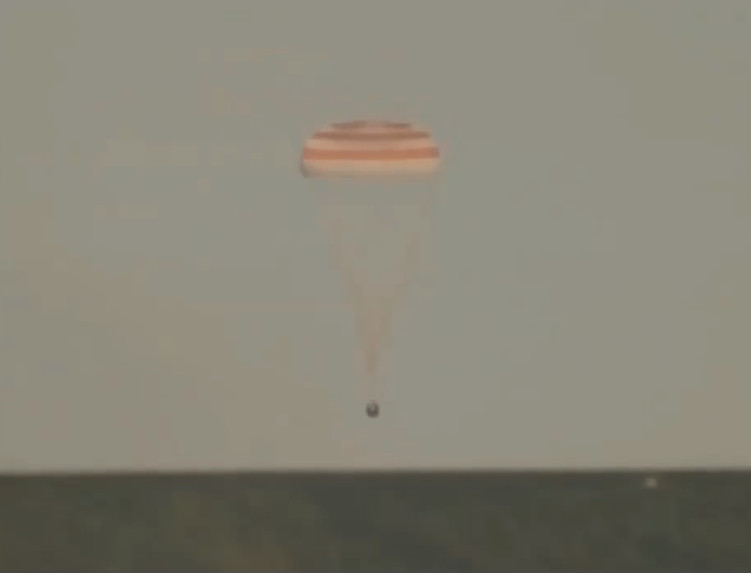Three astronauts returned after 168 days living in space
The astronauts safely landed on Earth with Russian spacecraft and in good health.
The Soyuz spacecraft sent astronauts from the International Space Station (ISS) to land on the prairies in Kazakhstan on June 3, Fox News reported. The cabin had no problems when landing with a large red and white umbrella.

The Soyuz spacecraft safely returned astronauts to Earth.(Cropped image from clip).
The three astronauts completed the mission, Anton Shkaplerov (Russia), Scott Tingle (USA) and Norishige Kanai (Japan) . They were taken out of the cabin for 30 minutes. It all seems to be in good health. After going out, the astronauts are taken care of to re-adapt to gravity on Earth.
"First of all, we feel fine. We are a bit tired but also proud to have completed the mission and are happy to return to Earth. Glad because the weather is nice, sunny. The landing process is also Shkaplerov shared.
The astronauts will be taken to the city of Karaganda, about 400km northeast of the land point. There, they will undergo a more thorough health check, then fly to Moscow, Russia or Houston, USA.
There are astronauts at the ISS station, Drew Feustel (USA), Ricky Arnold (USA) and Oleg Artemyev (Russia). Three other astronauts are scheduled to board the station on June 6 from Kazakhstan.
- Three astronauts returned to Earth safely after nearly 6 months on ISS
- The American astronaut was the first to identify the DNA sequence in the universe
- 3 astronauts on the International Space Station returned safely
- Astronauts bring cosmic flies to Earth
- The fifth cosmonaut returned to Earth
- American astronauts break the record of living in the universe back to Earth
- Russia's Soyuz spacecraft returned to Earth
- The US spends $ 55 million on NASA to promote the creation of space for astronauts
- Astronauts have many problems with their eyes and brain
- Will astronauts live 1 year on the ISS station?
- Endeavor returned safely to Earth
- Two American astronauts complete the third walk in space
 Van Allen's belt and evidence that the Apollo 11 mission to the Moon was myth
Van Allen's belt and evidence that the Apollo 11 mission to the Moon was myth The levels of civilization in the universe (Kardashev scale)
The levels of civilization in the universe (Kardashev scale) Today Mars, the sun and the Earth are aligned
Today Mars, the sun and the Earth are aligned The Amazon owner announced a secret plan to build a space base for thousands of people
The Amazon owner announced a secret plan to build a space base for thousands of people